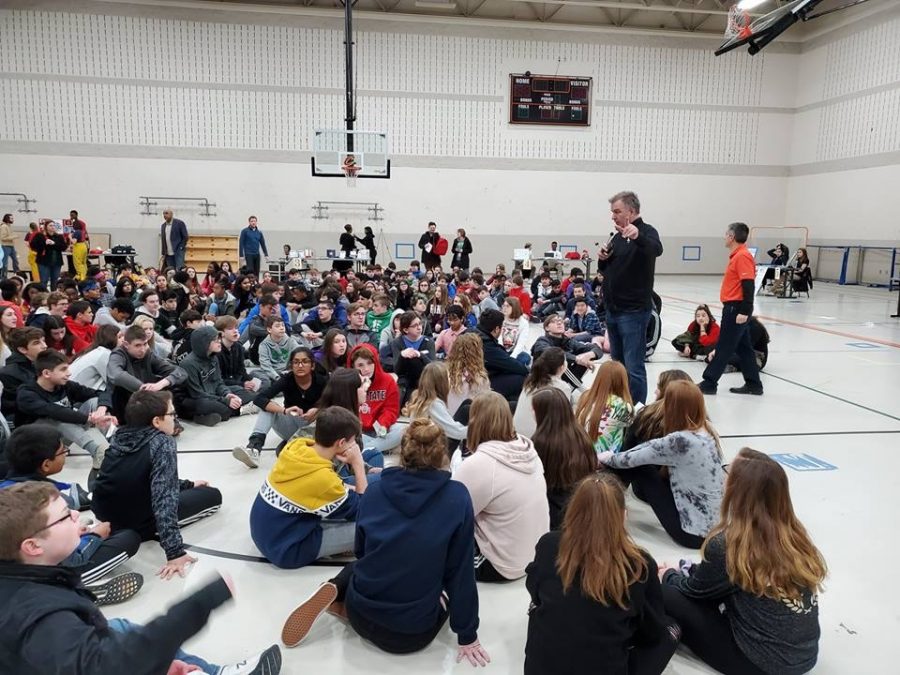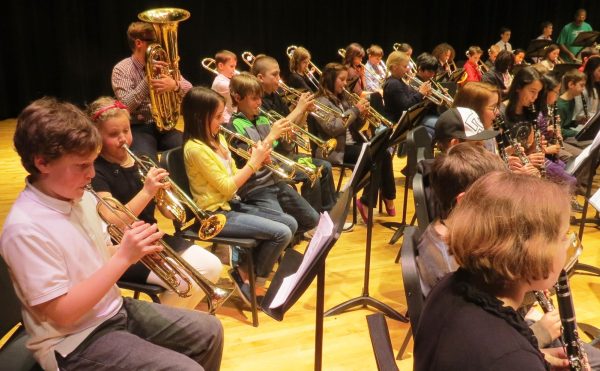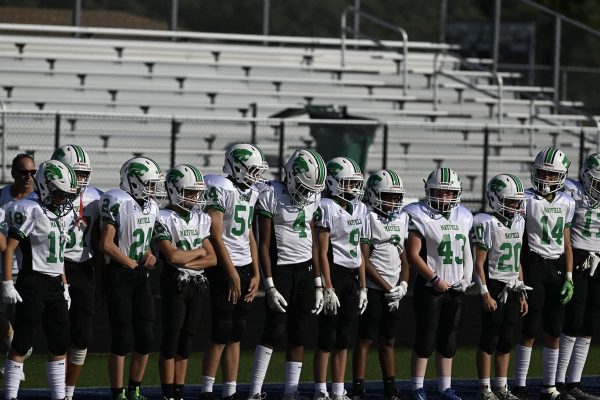8th graders visit Orange High School to learn about Excel TECC
March 15, eighth-grade students visited Orange High School to learn about its Excel TECC programs. The purpose of the field trip was to provide further information for students who may enter Excel TECC in the future.
Excel Technical Education Career Consortium programs or Excel TECC is an innovative career preparatory program housed in Mayfield High School, available for local school districts in order to prepare students to enter a four year college course, a two year practical course, or a career of their choice.
Mayfield School Counselor Mr. Paydo states, “Students can learn about the programs that Excel TECC offers. It is available for all students in Mayfield for grades 11 and 12. The main object of Excel TECC is to get students to think about their careers and what they want to do in the future.”
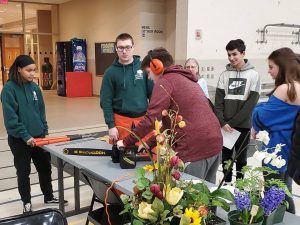 On the field trip, students learned about programs that other local schools host, not just Orange. For example, the programs featured were Business and Administration, CADD Engineering, Information Technology, Cosmetology, Health Science, Manufacturing [Production Welding], Auto Mechanics, Arts and Communication, Digital Arts and Technology, Auto Collision, Environmental Education, Fire/EMS Training Academy, and Interactive Media.
On the field trip, students learned about programs that other local schools host, not just Orange. For example, the programs featured were Business and Administration, CADD Engineering, Information Technology, Cosmetology, Health Science, Manufacturing [Production Welding], Auto Mechanics, Arts and Communication, Digital Arts and Technology, Auto Collision, Environmental Education, Fire/EMS Training Academy, and Interactive Media.
In recent years, there has been a considerably increased emphasis on career and technical training. According to Edweek, “about 8.3 million high school students—nearly half the U.S. high school population—were enrolled in one or more CTE courses in 2016-17.” That is up nearly 8 million from ten years prior.
These types of programs offer an alternative to a traditional four-year degree, but they don’t mean that students won’t continue their education or training after high school.
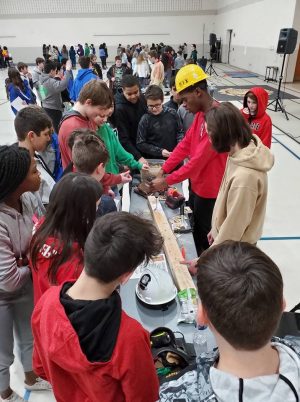 Edweek explains, “Within the last decade, however, low college-completion rates led to a rethinking of the “college for all” movement. With only about half of college students actually completing bachelor’s degrees, policymakers began calling for a richer set of options for students who didn’t want to go the four-year-college route.”
Edweek explains, “Within the last decade, however, low college-completion rates led to a rethinking of the “college for all” movement. With only about half of college students actually completing bachelor’s degrees, policymakers began calling for a richer set of options for students who didn’t want to go the four-year-college route.”
Career and technical education could mean earning certification or credentials in any number of fields like cybersecurity or robotics, and some of those might involve getting an associate or bachelor’s degree.
During the field trip, students rotated among stations set up by each of the programs to feature the types of learning and career paths available.
Eighth-grade student from team Hele, Gia Parker liked how people set up their tables. “The program that I am interested in is the Business and Administration because it sounds very interesting,” she said.
The programs of Excel TECC serve students from Mayfield, Orange, Beachwood, Aurora, West Geauga, Chagrin Falls, Richmond Heights and Solon.
At Excel TECC, students learn about job skills along with math, science, and language. Courses are geared toward the career of their choosing. The model is to streamline education–spending less time on content irrelevant to their careers. This allows students to focus on their interests. Excel TECC provides programs that prepare students to think and solve problems that they will encounter in the future.
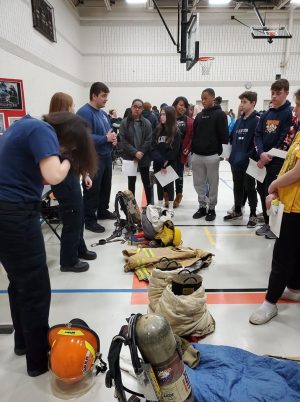 Excel TECC in Mayfield High School offers programs such as CADD Engineering Technology, Cosmetology, Information Technology Programming (ITP), Interactive Media, Medical Technologies, and Construction Trades. Additionally, Excel TECC in Orange High School offers programs like Studio and Art Design.
Excel TECC in Mayfield High School offers programs such as CADD Engineering Technology, Cosmetology, Information Technology Programming (ITP), Interactive Media, Medical Technologies, and Construction Trades. Additionally, Excel TECC in Orange High School offers programs like Studio and Art Design.
Each of these programs will earn the student 3 college credits each year.
Excel TECC offers another way to personalize education to ensure that school is a place where students become who they want to be and realize what they will do in the future. Edweek states, “The best programs aim to keep the doors to college open by requiring rigorous college-prep classes for CTE students, while also providing them with hands-on learning that lets them apply academics to real-world problems.”


